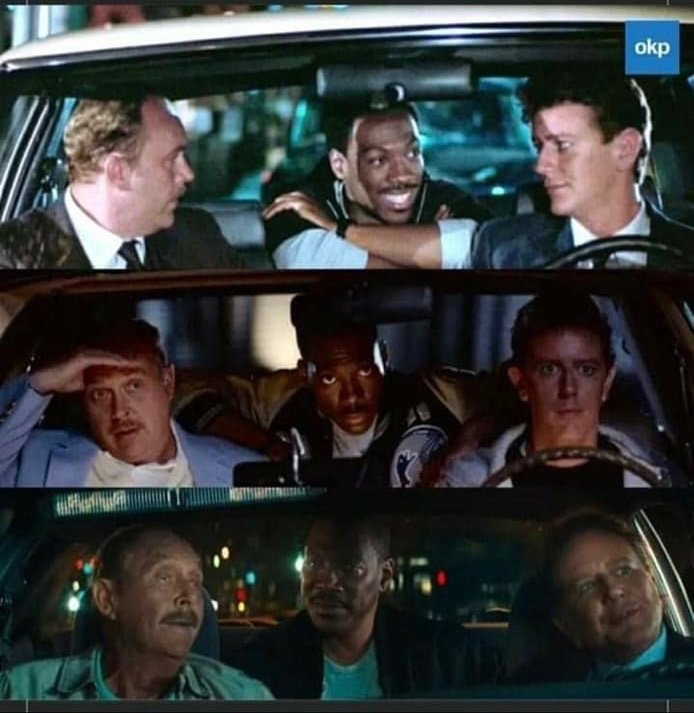-
Posts
10,047 -
Joined
-
Last visited
-
Days Won
174
Content Type
Profiles
Forums
Events
Blogs
Store
Articles
Everything posted by oblong
-

Your 2023 NFC North Champion Detroit Lions
oblong replied to MichiganCardinal's topic in Detroit Lions
Man if you told me I could spend $1100 right now for 2 for each game I wouldn’t hesitate. -

Your 2023 NFC North Champion Detroit Lions
oblong replied to MichiganCardinal's topic in Detroit Lions
I remember that. I got lucky and sold my extras for face. After game 2 people were getting them for like $30. -

Your 2023 NFC North Champion Detroit Lions
oblong replied to MichiganCardinal's topic in Detroit Lions
That seems very reasonable. Back when the tigers were competitive the ALCS tickets were in the $100 range. World Series tickets $200. That was over 10 years ago. Those prices are concert level for top acts. Not bad at all. I think we paid like $150 for Pink. -
So I have been thinking on this and it’s time the US and other nation begin to call on Israel to change tactics. What they are doing now is not working will never work. Hamas doesn’t give a **** if Palestinians dies. In fact they like it because it emboldens them. Israel had the right to retaliate and defend itself but if they haven’t been able to achieve their objective by now then do something else. Hamas is not a normal ruling government.
-

Your 2023 NFC North Champion Detroit Lions
oblong replied to MichiganCardinal's topic in Detroit Lions
I think of it just in terms of relevance and reasonable expectations of playoff success and this ends what I think is the longest drought since that 70s era. The Tigers did contend in the strike year of’81 and had what was considered a good team prior to 84. Then you throw in the wings and pistons in the late 80s. The Wings covered you for 20+ years, throw in the pistons and tigers until the 2014 time frame. Our sports scene needed this from the Lions. They are carrying the torch. -

Week Sixteen: Detroit Lions (10-4) @ Minnesota Vikings (7-7)
oblong replied to MichiganCardinal's topic in Detroit Lions
As a student of automotive history I can say there is some justice in a female member coming in and succeeding, at least for now, when the men couldn’t. For a long time their job was to host parties and be seen. -
For local Fox 2 is the place to go. Stephanie and Kelly Rowe.
-
How often do teams set a 5 man rotation in spring training and it play out that way during the season.
-
Nate getting rightly roasted for not realizing this was about state maps. Not US Congress
-
That’s when I checked out. Calc II. I was breezing thru calc I and my professor noticed I didn’t sign up for II. He approached me and said I was one of his best students. I told him as we got to the latest chapter of which became more story and real world application that it got much harder for me. Until then it came natural. I was stupid. I had the attitude if it’s not something that was meant for me since I struggled. He told me it was hard for him and he has a PhD. I often wonder what would have happened if I had better guidance. I was led to believe we were all good at something and we had to find it. Not learn to become good at something. My family wasn’t educated.
-
in all my time playing baseball and later softball I touched as little of the base as possible. I didn’t trust the “fat” part of the base when running with the intention of going to the next base. It could be wet, dusty, my spike could get caught. I never liked my whole foot on the bag.
-
You are confused and making this into semantics. Nobody is saying they are honest, as in you can trust them to hold $100 for you for a few days or that they won’t cheat on an exam. Not that type of honesty. what is meant in this context is how their belief is formed in their heart. Someone like Trump or Kari Lake or Guiliani all say what they do for personal gain. They know it’s bull****. All the grifters too. Tucker. Levin. Conway. But a big portion of the general public do not have that same motivation. They believe the lies they are told. In that sense their belief is honest because their motive is not personal gain. That distinction is important to know if you want to try to predict future behavior. You have to know the why. there are people who honestly believe essential oils work. If you wish to market to people and predict their behavior then you as an analyst have to accept that even though it’s ridiculous.
-
There’s lots of people who honestly think it was stolen because of the lies they have been fed. They lack the ability or courage to dig deeper. The truth doesn’t change because of that but if you going to analyze human behavior you need to understand their beliefs, regardless whether they are correct or accurate. Otherwise you get flawed results.
-
That’s how I was taught in HS (right foot on inside corner) but later on saw Gibson in a clinic advise to do the opposite, left foot on outside corner, his reasoning being at that point it’s more of a straight line. Seemed weird to me.
-
Wonder if that will lead to more doubles or double attempts? Without as sharp of a turn could a fast runner get more momentum?
-
And the GOP base is dumb enough to believe that analogy is sound.
-
Granted… it’s just desantis. He’s not that smart.
-
Their talking point is his “refusal to secure the border” and “student loans” is considered insurrection. Seriously. The WSJ said that.
-
The CO ruling is fun but I fully expect the SC to shoot it down so I’m not really giving it much thought.
-
I interacted with him a few times on twitter. He’d just post things like “on todays date in 1976 Peter Frampton…” I enjoyed his tweets for that reason.
-
I saw him last week on JJ’s last day and thought he didn’t look well.
-
They were the worst. I was lucky I only had to drive to Taylor. But not the part with stores and such. The industrial portion at like like Northline and Inkster or whatever. It was dark and nobody around. Like a mailbox.
-
Most voters don’t study this stuff as much as you or I or others here. Careful of the echo chamber.
-
From the article below. Trump, who has called the efforts to keep him off the ballot “nonsense” and “election interference,” is likely to try to appeal Tuesday’s Colorado ruling to the U.S. Supreme Court. Courts have ruled against similar efforts to get Trump banned from the ballot in Arizona, Michigan and Minnesota. The plaintiffs challenging Trump’s eligibility in Michigan filed an appeal to that state’s high court on Monday. I’m curious on the legal reasoning that a president isn’t “an officer of the US government “.




